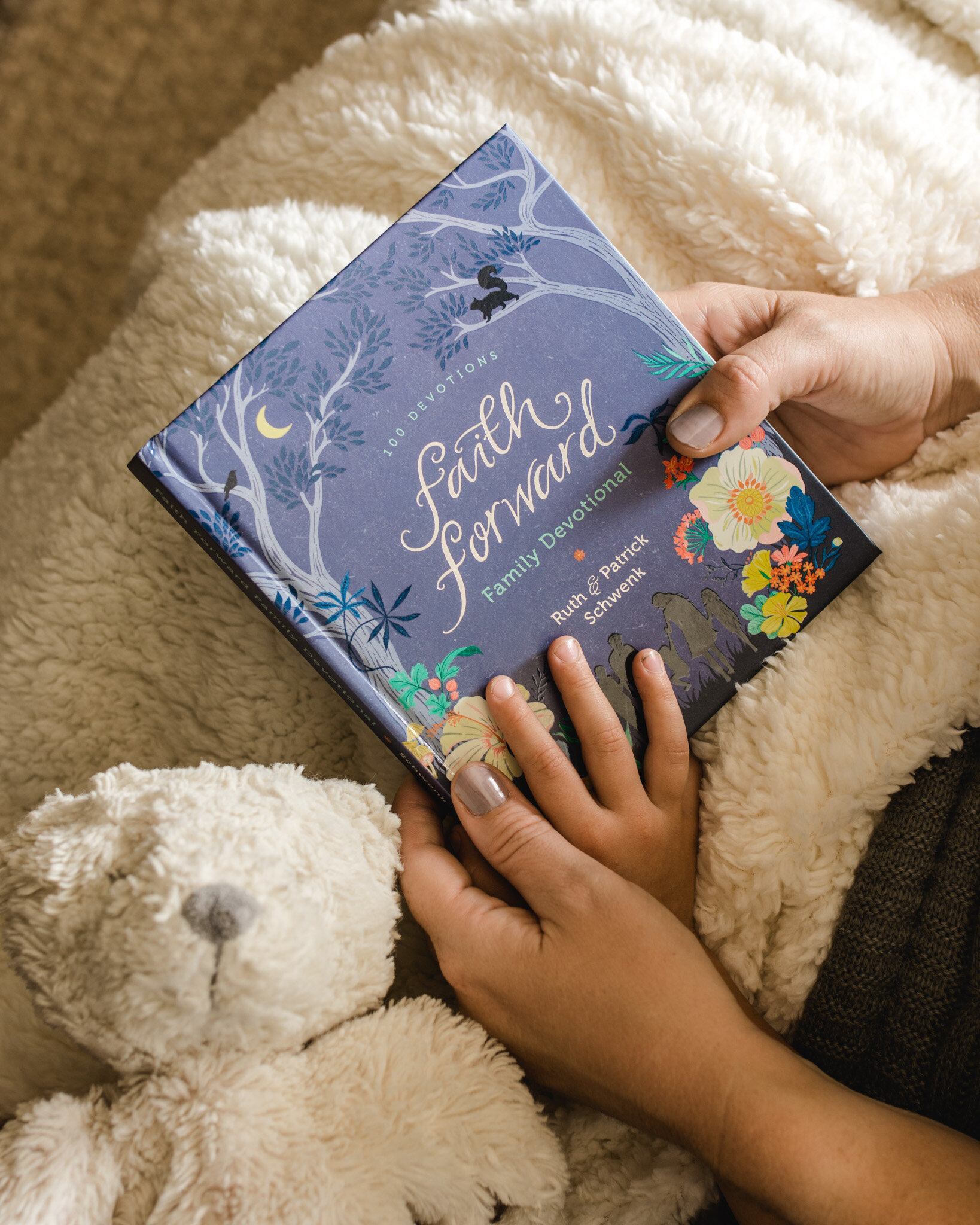Pass It On: 2 Questions to Consider When Training Up Children
Recently, my 8-year-old daughter told me she’s happiest when our family is worshiping God together. A few days later, my 13-year-old son told me he thought church was boring, he couldn’t see how it positively affected his life, and he didn’t want to go. Quite a contrast. And a bit startling, since nothing is more important to me than my children loving, following, serving, and depending on Jesus when they are adults.
Most of us are familiar with Proverbs 22:6 - “Train up a child in the way he should go; even when he is old he will not depart from it.” And yet, we often hear of kids who were raised in Christian homes, taught that the Bible is true, and can recite John 3:16 in their sleep who have completely rejected the teaching of their parents. So what can we do? The answer is, “Only our best” because ultimately, everyone is responsible for their own choice. But, we can also implement some helpful strategies while our kids are still at home.
Here are two questions to get you thinking about how to pass on your faith to your children:
1. Are my children free to doubt?
I have recently learned, through research and personal experience, that the teenage brain is wired to challenge everything. If you’re not at that stage yet - prepare yourself. As frustrating as this stage is to live through, the teen years are a crucial time when children are separating themselves from their parents and deciding what they want to accept on a personal level, including faith and values. They will challenge what they simply accepted as small children. Rather than allowing this to frighten us, this should encourage us. Without grappling and wrestling with faith issues, teens will not learn to think for themselves or accept faith on a deep and personal level. So, the question we need to focus on isn’t “Will my teens wrestle with their faith?” Instead, it’s “How will I respond when they do?”
Train them up:
Train your children, even small children, to ask questions and express doubt. Train them to bring their questions to God, to you and to other wise counsel, like a pastor. Without this training, they won’t know what to do with their their questions and doubt, leaving plenty of room for shallow faith or even rejection.
Train yourself:
Train yourself to identify with their doubt, rather than squash it, and point to Christ, not preach an answer. We all doubt at times. We all struggle with questions. Your child needs to see this is okay with you and okay with God. They need to see that God wants us to bring our questions and doubt to Him, rather than hide it.
Remember:
The goal is for your child to sort these things out in their own mind and adopt this faith as their own. This can’t happen without doubt, struggle and personal discovery.
2. Are my children free to mess up?
In her book, Sticky Faith, author Dr. Kara Powell discusses the impact of messing up on college-age children raised in Christian homes. When, not if children slip up and do things they know they’re not supposed to do (according to their parents and their faith), immense guilt can actually push them away, rather than draw them back to their faith. I know from personal experience how easily guilt can overshadow grace. Children who are raised in homes where mess-ups are met with grace, and forgiveness is freely offered can have an easier time dealing with their own failures down the line. Children need to know mess-ups are commonplace and God’s grace is abundant.
Train them up:
Train kids to share their failures, not hide them. Train them to understand everyone messes up and God wants us to come back to him when we do.
Train yourself:
Train yourself to meet mess-ups, small and large, with grace. From coffee accidentally spilling on the rug to intentional, stupid choices, we must create an environment where mess-ups are not the end of the world. Instead, they are opportunities to grow and experience God’s forgiveness.
Remember:
The goal is for our kids to learn that nothing will separate them from the love of Christ, not even the biggest mess-ups.
I also suggest talking with other parents of grown children who follow Christ. Ask if they have any advice or can offer tools they used when their kids were growing up.
Finally, the most important thing to do is to pray. Pray for your kids and pray for yourself as a parent, because no list of tips or tools can compare with the Holy Spirit’s power and guidance.
Warmly,
Lauren
Faith Forward Family Devotional is written for families with children of all ages to help equip and inspire you to raise another generation to love and serve Jesus.
In just a few minutes a day, at your own pace, you can take your family through the entire Bible in one hundred devotions.
Grow closer to your kids as they grow closer to God.
Share this post:










